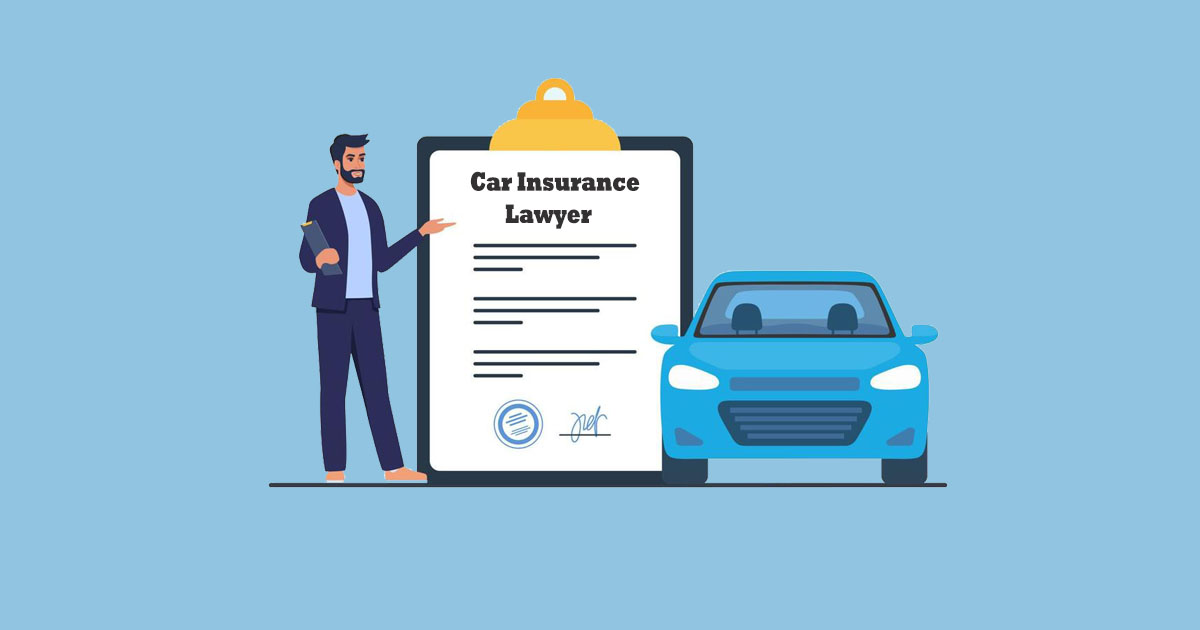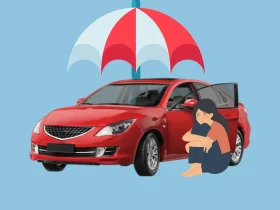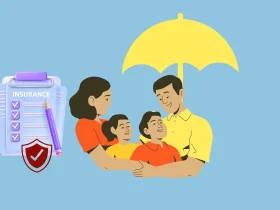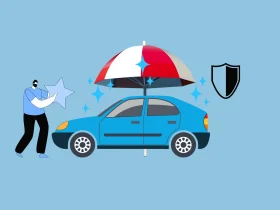Car insurance is more than just a legal requirement—it’s essential protection for drivers. A critical part of this protection is understanding the role of a car insurance lawyer. This guide will focus on how a car insurance lawyer can assist you with claims, disputes, and securing fair compensation. Knowing when to involve a car insurance lawyer is critical whether you’re new to driving or want to refresh your knowledge. Auto insurance, combined with the expertise of a car insurance lawyer, helps cover costs from accidents, theft, or damage, easing the financial burden on drivers.
What is car insurance?
Car insurance is a contract between you and an insurance company, where you pay premiums in exchange for financial protection against vehicle-related losses. This includes coverage for damages to your car or another vehicle, property damage, injuries caused in an accident, and medical expenses. Coverage varies based on your state’s requirements and any additional options you choose. All states, except New Hampshire, require minimum liability coverage.
Warning: Failing to have the minimum car insurance required by your state can result in severe consequences, such as license suspension, fines, or even jail time for repeat offenses.
How Car Insurance Works?
By paying a premium, the insurance company agrees to cover your losses as specified in your policy. Policies are tailored to allow you to adjust coverage levels according to your needs and budget. Typically, policies last for six or twelve months and can be renewed. The insurance company will inform you when it’s time to renew your policy and make another payment.
Even if states don’t require a specific minimum amount of auto insurance, almost all require drivers to have bodily injury liability. This covers expenses related to injuries or death caused by you or another driver while driving your car. States may also require property damage liability, compensating others for damage you or another driver cause to their vehicle or other property.
Some states take it further by requiring car owners to have medical payments or personal injury protection (PIP). This coverage reimburses medical expenses for injuries to you or your passengers and can also cover lost wages and other related costs.
Uninsured motorist coverage compensates you if you’re in an accident caused by a driver without insurance. Underinsured motorist coverage helps when the at-fault driver has some insurance but not enough to cover the total cost of the claim.
Note: Opting for a car insurance policy with coverage limits higher than the state minimum may raise your premium, but it could provide excellent financial protection if you are involved in an accident.
Car Insurance lawyer
A car insurance lawyer specializes in legal issues related to car insurance claims and disputes following accidents. They assist with negotiating settlements, handling claims denials, and ensuring fair compensation for damages or injuries. These lawyers gather evidence, review policies, and advocate for clients in court if necessary.
Auto insurance lawyers assist clients in several ways:
- Claim Disputes: They help if an insurance company denies a claim or offers a settlement that doesn’t adequately cover your losses. A lawyer can negotiate with the insurance company on your behalf.
- Policy Interpretation: They can provide clarification and advice on the terms of your insurance policy, helping you understand what coverage you are entitled to.
- Accident Liability: They determine liability and fault in car accidents, which is crucial for claims. This includes gathering evidence, interviewing witnesses, and sometimes reconstructing accidents.
- Legal Representation: If a dispute over a claim goes to court, an auto insurance lawyer can represent you, ensuring your rights are protected and advocating for a fair judgment.
- Personal Injury Claims: For more severe accidents involving bodily injuries, these lawyers help you receive compensation for medical expenses, lost wages, and pain and suffering.
If you’re facing issues with your car insurance claim or have been in a car accident, consulting with an auto insurance lawyer can help you effectively navigate the complexities of insurance laws and regulations.
When to Hire a Car Insurance Lawyer for an Insurance Claim
If you have any concerns about your insurance company’s claims process, it’s best to seek advice from a lawyer.
If this is your first time filing a claim, you might not be sure which concerns are serious enough to need a lawyer. Here are some factors to think about when deciding whether to get a lawyer involved:
- The seriousness of your injuries. A serious injury impacts you long-term, requires hospitalization, makes you miss work or school, leads to lost income, or comes with high medical bills. If you’ve suffered a serious injury from a car accident, it’s wise to contact an attorney before dealing with your insurance company.
- The offered settlement is too low. Insurance companies aim to save money, so they often make low offers. Many accept these offers to finish the process, even if the settlement doesn’t fully cover their accident-related costs. A lawyer can negotiate with the insurance company for a higher settlement that compensates you for your losses.
- The other driver’s insurance is refusing to pay. If the other driver’s insurance company denies payment, they’re likely disputing their policyholder’s responsibility for the accident, claiming it’s not their fault. When fault is unclear, you’ll need to prove the other driver’s liability, which is much easier with a lawyer’s assistance.
- Your case is going to trial. If your insurance claim is headed to court, especially outside of small claims court, having an attorney will definitely benefit you.
Moreover, asking yourself these questions can help you determine if hiring an auto insurance attorney is necessary for your car accident claim.
A few other situations where you should likely contact a car insurance attorney:
– The accident resulted in a death.
– A pedestrian was injured.
– You or the other driver doesn’t have insurance.
– You are at least partially at fault.
– Your insurance company starts involving its own attorneys.
How to settle an auto insurance claim without a lawyer?
Settling an auto insurance claim without a lawyer involves several steps to ensure you receive a fair resolution. Here’s a general guide:
- Document Everything: Gather all relevant information about the incident, including photos of the damage, a copy of the police report, witness statements, and records of any medical treatment, if applicable.
- Contact Your Insurer: Let your insurance company know about the accident immediately and share all the documents you’ve gathered.
- Check Your Policy: Ensure you understand your insurance policy to know what kind of compensation you can expect.
- Get Repair Estimates: Obtain multiple repair estimates for your vehicle. This will give you a solid basis for the repair costs.
- Assess the Offer: When the insurance company makes an offer, assess it carefully. Compare it with your repair estimates and any applicable medical expenses.
- Negotiate: Don’t hesitate to negotiate if the insurance company’s offer does not meet your needs. Present your documentation to justify your counteroffer.
- Final Agreement: Once you reach an agreement, ensure all details are documented in the final settlement agreement. Please read it carefully before signing.
- Consult If Needed: While a lawyer isn’t involved in this approach, consulting with a legal advisor for advice on the final agreement can be beneficial.
Handling your claim requires careful attention to detail and understanding of your insurance coverage, but it can be a cost-effective alternative if the case is straightforward.
The Top Car Insurance Companies of August 2024: As of Forbes Advisor Ratings
| Editors’ Take | Company | Forbes Advisor Rating | Collision Repair Grade |
|---|---|---|---|
| Best overall | Nationwide | 5.0 | C |
| Best for military members and veterans | USAA | 4.8 | D+ |
| Great for drivers with speeding tickets | Travelers | 4.7 | C |
| Best for drivers who caused an accident | Erie | 4.6 | A- |
| Best for drivers with a DUI | Progressive | 4.4 | C |
| Great for drivers with poor credit | Geico | 4.2 | C- |
| Best for family discounts | Westfield | 4.2 | B |
| Best for new cars | Auto-Owners | 4.0 | B |
For the details: https://www.forbes.com/advisor/best-car-insurance-companies/FAQs About Car Insurance?
FAQs About Car Insurance
Who owns direct auto insurance in the USA??
National General Holdings Corp owns Direct Auto Insurance. National General, an insurance company specializing in various types of insurance and related services, acquired Direct Auto Insurance to expand its portfolio and reach the auto insurance market.
Can you get auto insurance with a suspended license?
You can get auto insurance with a suspended license, but it can be more challenging and costly. Insurance companies might see you as a high-risk driver, which could result in higher premiums. However, some insurers specialize in offering coverage to drivers with suspended licenses.
Additionally, you might need to obtain an SR-22 form and a certificate of financial responsibility to prove that you have the minimum insurance coverage required by your state. This is often necessary to reinstate your driving privileges after a suspension.
Is direct auto insurance good?
Direct Auto Insurance is generally considered a good option for individuals with difficulty obtaining insurance from other providers due to their driving history or credit issues. Here are a few points to consider:
- Target Audience: Direct Auto Insurance specializes in providing services to high-risk customers, including drivers with poor driving records, previous accidents, or lapses in insurance coverage.
- Coverage Options: They offer various coverage options, including liability, collision, comprehensive, and more. They also provide flexibility in payment plans, which can be particularly beneficial for those who need to adjust their budgeting.
- Customer Service: Reviews on their customer service are mixed. Some customers appreciate the personal attention they receive at local offices, while others have reported challenges with service during claims processes.
- Cost: Premiums might be higher than average, especially for high-risk drivers, but this is typical of insurers who service this market segment.
- Accessibility: They have physical offices in several states, which can be a plus for customers who prefer in-person service.
Whether Direct Auto Insurance is a good fit depends on your specific needs, driving history, and how much you value the ability to obtain insurance with a potentially problematic driving record. It’s always a good idea to compare policies and read customer reviews to make an informed decision.
Does renters insurance cover car theft?
Renters insurance typically does not cover the theft of a car itself. The vehicle must be insured under an auto insurance policy for that kind of protection. However, renters insurance often covers personal property that may be stolen from inside your car. This can include items like laptops, clothing, or other personal belongings, provided they fall under the terms of your renters’ insurance policy.
Review your renters’ insurance policy to understand what it covers, as coverage can vary. You should have a separate auto insurance policy with theft coverage for comprehensive vehicle protection.
Does car insurance cover repairs?
Car insurance coverage for repairs depends on the type of policy you have:
- Collision Coverage: This covers repairs to your car if it’s damaged in a collision, regardless of who is at fault.
- Comprehensive Coverage: This covers repairs for damage to your car from non-collision-related incidents, such as theft, vandalism, fire, natural disasters, and falling objects.
- Liability Insurance: This doesn’t pay for repairs to your car. It covers the damage you cause to other vehicles or property if you’re responsible for an accident.
Repairs covered are typically after you pay a deductible, which is the amount you agree to pay out-of-pocket before your insurance coverage kicks in. Always check your specific policy for details about what is covered and under what circumstances.
Who gets the insurance check when a car is totaled?
When a car is declared a total loss (totaled), who receives the insurance check depends on the ownership status of the vehicle
- You Own the Car Outright: If you have no loan or lien on the vehicle, the insurance payout will typically be sent directly to you.
- You Have a Loan or Lease: If there is a lienholder (a bank or finance company) or you are leasing the vehicle, the insurance check will generally be made out to both you and the lienholder or lessor. The check may be sent directly to the lienholder, who will apply the payment toward the loan or lease balance. Any excess amount after the loan or lease balance is covered will be paid to you.
- Gap Insurance: If the payout does not cover the total amount you owe on the loan or lease, gap insurance (if you have it) can cover the difference.
Moreover, the exact process can vary by state and insurance company, so it’s essential to consult with your insurance agent or company to understand how they handle payouts for totaled vehicles.








Leave a Reply